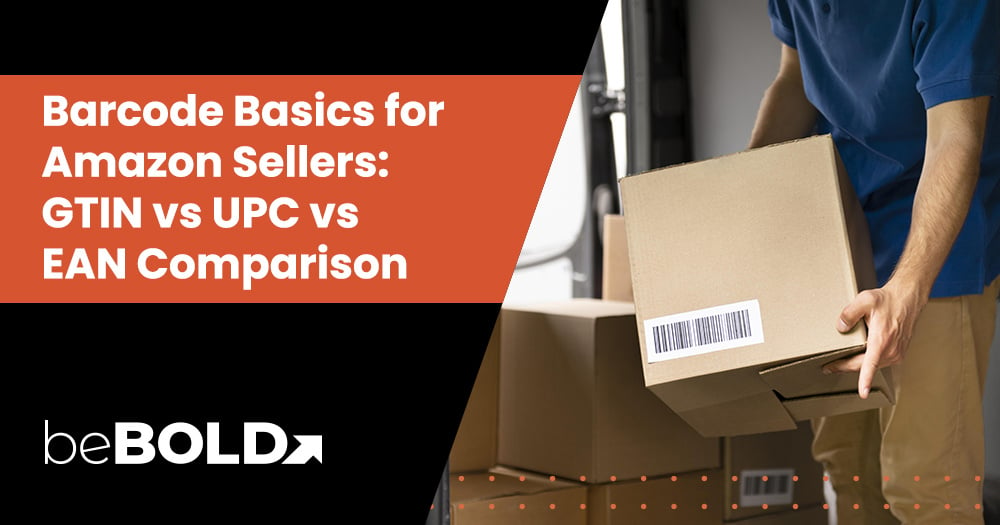When starting an online business, two popular strategies often stand out: Affiliate Marketing and Amazon FBA (fulfillment by amazon). Affiliate Marketing allows you to earn commissions by promoting products without handling inventory or customer service, while Amazon FBA enables you to sell your own products using Amazon's logistics and vast customer base. Both offer unique opportunities, but they come with different requirements, risks, and rewards.
Choosing the right path can be overwhelming, especially for beginners. Should you go for affiliate marketing, which has flexibility but is based on third-party platforms? Or is Amazon FBA better, despite the upfront costs and operational complexities? The decision is critical as it impacts your workload, scalability, and profit potential.
This blog breaks down the essentials of Affiliate Marketing and Amazon FBA, offering a clear comparison of their advantages, disadvantages, and unique considerations for beginners. By the end, you'll have the clarity you need to choose the strategy that aligns best with your goals and resources.
Affiliate Marketing vs. Amazon FBA: Understanding How They Work

It's crucial to understand the mechanism behind Affiliate Marketing and Amazon FBA business models, their key players, and the intricacies of their operation. An affiliate marketer plays a role similar to a middleman, promoting others' products on their platform (like a blog or website) and receiving a commission for each purchase made through their affiliate link. Conversely, an Amazon FBA seller runs a more traditional business model, producing or sourcing their products, listing them on Amazon, and relying on Amazon's infrastructure and resources for storage, shipping, and customer service.
What is Affiliate Marketing?
Affiliate Marketing is a form of online business where you promote and sell products or services of another company via unique affiliate links and earn commissions on each successful sale. You play the role of an 'affiliate,' bridging the gap between the product owner or service provider and the potential buyers. Your main goal is to attract traffic to your platform and convincingly promote the products, leading to purchases made through your referral.
The vast spectrum of available products and businesses offers you liberty in choosing your niche based on your interests and audience requirements. Moreover, affiliate marketing could be shaped as passive income depending on how effectively you set up your system.
How it works?
Affiliate Marketing's workflow is relatively simple and can be broadly summarized into four significant steps.
- Choosing the right product/service: This involves zeroing down on your niche and identifying the products that would cater to your audience's demands and needs. You then sign up with appropriate affiliate networks that list these products.
- Getting your affiliate link: Once joined, you get a unique affiliate link for each product you wish to promote. This link traces back all purchases made through it to you, ensuring you get your deserved commission.
- Promoting Products: You use your platform (such as a blog or a YouTube channel) to generate informative and engaging content centered around the products. It could be reviews, comparisons, unboxing videos, etc., at the end of which you share your affiliate link urging your audience to make a purchase.
- Earn Commission: For each successful purchase made through your referral, you receive a commission from the product owner or service provider. The percentage of commission varies significantly with the type of product, service, or affiliate program.
What is Amazon FBA?
Amazon FBA (Fulfillment by Amazon) is an E-commerce model where the sellers list their products on the Amazon platform and utilize Amazon's robust infrastructure for storage, the shipping process, and customer service. Amazon allows sellers to dispatch their products to Amazon's warehouses whenceforth Amazon takes over responsibility.
This includes storing the products, packing and shipping orders once purchased, managing returns, and handling customer service. The massive user base of the Amazon platform and its exceptional customer service promises a broad audience reach and consumer satisfaction. Also, being an Amazon FBA seller makes you eligible for Amazon Prime, thereby drawing in more customers.
How it works?
The method of operation of Amazon FBA contains the following stages:
- Setting Up: The initial stage involves setting up your amazon seller account, following the instructions, and selecting "Fulfillment by Amazon" as your shipping method.
- Listing Your Products: Next, you list the products you want to sell. If your product is already listed on Amazon, you just add it to the existing listing. If not, you need to create a new listing, which may include private labeling.
- Shipping To Amazon: You then ship your products to Amazon's warehouses, where they are stocked on the shelves, ready to be picked, packed, and shipped when an order comes through.
- Customers Buy Your Products: Customers view and eventually buy your products on Amazon.com. If you have opted for FBA, your products are eligible for Amazon Prime and other services offered by Amazon.
- Amazon Fulfills Order: Post a successful purchase, Amazon takes care of locating your product in their warehouse, packing it securely, and shipping it to the customer.
- Managing Returns and Customer Service: Amazon also manages the customer service for these orders, including the processing of customer returns.
|
Aspect |
Affiliate Marketing |
Amazon FBA |
|
Business Model |
Promotes third-party products via unique affiliate links to earn commissions. |
Sells own products on Amazon and uses Amazon's infrastructure for storage, shipping, and customer service. |
|
Investment Required |
Low initial investment; no inventory or storage costs. |
Higher initial investment; requires sourcing or manufacturing products and shipping them to Amazon warehouses. |
|
Earning Potential |
Commission-based; depends on traffic and conversions. |
Profit margins depend on product pricing, demand, and costs like Amazon fees. |
|
Risk Level |
Low risk; no inventory or product development. |
Moderate risk; involves inventory management and product development costs. |
|
Operation |
Create content (blogs, videos, etc.), promote products, and drive traffic to affiliate links. |
List products, ship inventory to Amazon, and rely on Amazon to handle fulfillment and customer service. |
|
Scalability |
Can scale with increased traffic and affiliate partnerships. |
Scalable with proper inventory and market strategies, though logistics may become complex. |
|
Customer Interaction |
Minimal; focus is on promotion and traffic generation. |
Significant; Amazon handles customer service, but sellers manage product quality and branding. |
|
Passive Income |
Possible, depending on how content and promotion strategies are set up. |
Less passive; requires active management of inventory and product listings. |
Advantages and Disadvantages of Affiliate Marketing vs Amazon FBA
When comparing affiliate marketing and Amazon FBA, each model offers unique benefits and challenges. Affiliate marketing excels with its low startup costs and flexibility, while Amazon FBA leverages a vast customer base and efficient logistics. Understanding their advantages and disadvantages can help determine which suits your business goals. Let’s look at these advantages and disadvantages in detail:
Advantages of Affiliate Marketing
Here are some prominent benefits that make Affiliate Marketing a popular choice:
1. No Upfront Investment or Inventory Handling
Unlike traditional retail business or amazon FBA, there are no upfront costs of buying products or managing inventory. This results in reduced risk and entry barriers, making it accessible for anyone wishing to venture into online business.
2. Passive Income Potential
After initial setup and content creation, the system works on its own. You can earn money even while you're sleeping if purchases are made through your link.
3. Work Flexibility
With affiliate marketing, you can work from anywhere, anytime, and at your convenience. It's highly flexible and doesn't require dedicated hours or location.
4. Variety of Products
Affiliate marketing grants a broad spectrum of products spanning various niches. You can opt for tech products, fashion items, educational courses, subscription boxes and more. This lets you choose products that cater to your interests and skill sets.
5. Effortless Scaling
Scaling in affiliate marketing only entails expanding the types of products you promote or growing your audience base. Unlike a traditional business, it does not result in additional operational or managerial complexities.
Disadvantages of Affiliate Marketing
While affiliate marketing appears alluring, it does come with a set of challenges:
1. Inconsistent Income
The income is purely commission-based, and thus, there's no guaranteed or regular income. Your monthly earnings could fluctuate substantially.
2. Dependence on Third-Party Platforms
Your income depends on another platform's rules and procedures, which might change unpredictably, upsetting your earning strategy. You're essentially building your business on someone else's land.
3. No Control Over Affiliate Programs
As an affiliate marketer, you have no control over affiliate program policies. If a company decides to lower its affiliate commissions or close its program altogether, your earnings might take a hit.
4. Competition
Since it's easy to join affiliate programs, there are potentially hundreds, or even thousands, of other affiliates promoting the same products. This can make standing out and persuading customers to buy from your links rather than others seem challenging, especially for newcomers in the field.
Advantages of Amazon FBA
Amazon FBA offers several compelling advantages for sellers. Let's discuss them below.
1. Efficient Fulfillment Process
By taking advantage of Amazon's sophisticated logistics network, you are relieved from managing warehouse storage, packaging, shipping, handling returns or customer service – Amazon covers it all.
Also Read: Is Selling on Amazon Worth it?
2. Access to Amazon's Massive Customer Base
The amazon marketplace is one of the world's largest online marketplaces, providing a potential customer base that few other platforms can match. Your products see increased visibility and higher sales potential.
3. Eligibility for Amazon Prime
Amazon FBA automatically makes your products eligible for Amazon Prime, opening up a vast segment of loyal, frequent customers who prefer Prime-eligible products for their faster delivery times.
4. Customer Trust
As your products are seen as Amazon's products, your business inherits the trust and credibility that customers associate with Amazon, especially when aligned with your target audience. This boosts their purchase confidence and can result in higher conversion rates.
5. Focus on Business Expansion
With tedious operational responsibilities off your shoulders, you can focus on sourcing great products and strategies to grow and expand your business.
Disadvantages of Amazon FBA
However, Amazon FBA isn't without its drawbacks:
1. Upfront Investment
Unlike affiliate marketing, Amazon FBA requires an upfront investment in buying inventory. Depending on the nature of the product, this can range from hundreds to several thousand dollars.
2. Ongoing Costs
In addition to storage fees, which increase during peak season, FBA also charges fees for each item sold. These costs, often underestimated, can eat significantly into your profit margins if not planned well.
3. Complexity
Amazon has stringent rules around product quality, listing creation, return policies, and more. A slight violation can lead to your listing getting suppressed or even account suspension.
4. Intense Competition
As easy as it sounds to sell on Amazon, there are hundreds of thousands of sellers trying to reach the same customers.Standing out in this competition can be challenging.
5. Less Control Over Branding
Though you can private-label your products, the customer ultimately sees the product as being sold by Amazon. This can limit your branding efforts and customer loyalty to some extent.
|
Aspect |
Affiliate Marketing |
Amazon FBA |
|
Upfront Investment |
No upfront investment or inventory handling; low risk. |
Requires significant upfront investment in inventory, raising entry barriers. |
|
Passive Income |
Offers passive income potential once set up; minimal ongoing effort. |
Income depends on continuous inventory management and operational planning. |
|
Scalability |
Easily scalable by expanding product types or audience base without operational complexities. |
Scalable but requires additional inventory and logistics, which can increase operational challenges and costs. |
|
Product Variety |
Access to a wide variety of products across multiple niches. |
Product options depend on sourcing and market demand and may require private labeling for differentiation. |
|
Work Flexibility |
Highly flexible; work from anywhere and anytime. |
Less flexible due to inventory management, sourcing, and adherence to Amazon's rules. |
|
Customer Base |
Relies on third-party platforms and individual efforts to drive traffic and sales. |
Leverages Amazon's massive customer base and marketplace visibility. |
|
Branding Opportunities |
Minimal branding control as you promote products for other companies. |
Allows private labeling but limits direct customer relationships as Amazon is perceived as the seller. |
|
Customer Trust |
Depends on the credibility of the affiliate program and product provider. |
Inherits customer trust and credibility associated with Amazon. |
|
Operational Complexity |
Low; no need to handle inventory, shipping, or customer service. |
High; must manage inventory, adhere to Amazon's policies, and handle fees. |
Comparing Affiliate Marketing and Amazon FBA
Affiliate marketing and Amazon FBA are different online business paths. Affiliate marketing promotes others' products with minimal investment, while Amazon FBA involves managing inventory in Amazon's warehouses. Affiliates drive sales through unique links, while FBA sellers leverage Amazon's logistics. Understanding these differences is key when choosing between the two for your online venture.
1. Ease of Getting Started
In terms of getting started, Affiliate Marketing certainly seems more straightforward. There are virtually no upfront costs involved, fewer technicalities to grasp, and without time-bound obligations, you can afford to learn and grow at your own pace. You only need a platform (like a blog, YouTube channel, or social media page) where you can promote the affiliate links. There are countless affiliate programs to choose from that fit your audience and interests.
On the other hand, Amazon FBA demands a broader understanding of the e-commerce world right from the start. You need to know about sourcing the right products, managing inventory, optimizing listings, dealing with Amazon's complex seller platform, grappling with Amazon's stringent rules, and also the crucial ongoing costs that are a part of the FBA model.
2. Business Setup and Operational Complexity
On the business setup front, affiliate marketers have less hassle. Once you understand how to work with affiliate links, all you need is a platform for your content. However, creativity is involved in crafting content that can generate interaction and eventually result in sales through your referral.
Amazon FBA, as already mentioned, has a more traditional business setup involving purchasing inventory, dealing with suppliers, and cost formations. When it comes to operations, the entire business needs to be molded to suit Amazon's rules and algorithms. Amazon FBA sellers need to constantly strategize to keep up with Amazon's changes, handle competition, manage supplier relations, and keep tabs on inventory levels to avoid stockouts or long-term storage fees, among other things. On a brighter note, Amazon handles storage, shipping, and customer relationships regarding returns and refunds, relieving some operational stress.
3. Active vs Passive Income Potential
Affiliate Marketing primarily offers passive income potential. After the initial setup and content creation, which are undeniably active work, the earning becomes more or less passive. If purchases are made through your referral link, even when you're not actively working on it, you earn money. It's an excellent choice for individuals looking to build a sustainable income. The key here is to create timeless, high-quality content that continues to draw traffic and make conversions timelessly.
For Amazon FBA, the line between passive and active income is blurred. On the one hand, after your inventory is shipped to Amazon's warehouses, the order fulfillment becomes a hands-off process, thereby qualifying as a passive income source. On the other hand, the need for consistent product and market research, inventory management, dealing with suppliers or Amazon Seller Central issues make it an active business. The income can be consistent, too, if you've well-knit operational strategies and products with constant demand.
4. Inventory and Capital Requirements
When it comes to inventory management, affiliate marketers have it easy. They simply promote other people's products and do not deal with any inventory or capital requirements related to the product. This greatly simplifies the business model and reduces the financial risk involved.
On the other end, Amazon FBA sellers need consistent inventory management, which implies a sustained capital investment and effective pricing strategies. You must update your stock regularly to keep up with demand and avoid the dreaded 'out of stock' label. It also necessitates forecasting sales accurately to prevent overstocking or understocking. The capital requirement includes the cost of buying inventory and related costs like shipment to the Amazon warehouse, inspection costs if applicable, customs duty for imported goods, etc. However, with a smart product selection and efficient inventory management system, these processes can be handled proficiently.
5. Risks Involved
The risks in affiliate marketing and Amazon FBA differ significantly. Affiliate marketing has lower risks, with no upfront costs, inventory, or customer service issues. However, revenue instability arises from reliance on affiliate programs, which can change policies or commissions unexpectedly. Additionally, dependence on third-party platforms can impact traffic and earnings.
In contrast, Amazon FBA faces retail-like risks, such as deadstock, transit damage, and unreliable suppliers. Operating on Amazon's platform also involves uncertainties due to changing algorithms and rules, with mistakes potentially leading to suppressed listings or account suspension. Intense competition from other sellers adds to the challenges. Despite these risks, Amazon FBA offers high returns that may justify the effort and investment, allowing sellers to make a lot of money.
|
Aspect |
Affiliate Marketing |
Amazon FBA |
|
Ease of Getting Started |
Easy to start; no upfront costs or inventory management. Requires a platform to promote affiliate links. |
More complex; requires knowledge of e-commerce, sourcing products, and using Amazon’s seller platform. |
|
Business Setup Complexity |
Minimal setup; focus on creating content to drive traffic and sales. |
Requires purchasing inventory, working with suppliers, and adhering to Amazon’s guidelines. |
|
Operational Complexity |
Low; no need to handle inventory, shipping, or customer service. |
High; involves inventory management, supplier relations, and aligning with Amazon’s algorithms. |
|
Income Type |
Primarily passive; earnings continue with minimal ongoing effort after setup. |
Mix of passive (order fulfillment) and active (inventory and market management) income. |
|
Inventory Requirements |
No inventory or capital needed; promotes others' products. |
Requires consistent inventory updates and capital investment for stock and related costs. |
|
Capital Requirements |
Minimal; no need to purchase products or handle logistics. |
High; includes costs like purchasing inventory, shipping to warehouses, and potential inspection fees. |
|
Risk Level |
Low; no financial investment but dependent on third-party platforms and program policies. |
Higher; upfront investment poses financial risks, and competition can impact |
Amazon FBA vs Affiliate Marketing: Which One Is Best For Newbies?

Both Amazon FBA and Affiliate Marketing offer attractive proposals for newbies longing to set foot in the online business world. While affiliate marketing offers a low-entry barrier, minimal risks, and flexibility, Amazon FBA opens a gateway to a vast audience, higher profit margins, and the potential to grow into a full-time venture. The decision boils down to your aspirations, readiness to invest upfront, and the level of involvement you seek in your business. To help you decide on which business model would be ideal for you, let's analyze a few significant considerations imperative to newbies.
Considerations for Choosing the Right Option
Here are a few important considerations to keep in mind while choosing between Amazon FBA and affiliate marketing:
- Comfort with Upfront Investment: If you're uncomfortable with making an upfront investment or working with suppliers, Affiliate Marketing should be your pick. Amazon FBA requires purchasing stock and sufficient capital to maintain inventory.
- Desire for Branding: If you aim to build a brand of your own, Amazon FBA holds an advantage as you get to sell your own products compared to Affiliate Marketing, where you sell other people's products.
- Future Vision: If you see this as a short-term trial, Affiliate Marketing could be more suitable. If you want to build a long-term sustainable business, Amazon FBA allows better scalability.
- Availability of Time: Affiliate marketing offers greater flexibility in terms of time. Amazon FBA could demand a regular commitment, especially while setting up.
Can You Do Both?
You can indeed run both simultaneously if you have the bandwidth. One might even complement the other. For instance, as an Amazon seller, you can start a blog or a YouTube channel revolving around your product niche. This is a great way to promote your own products and allows you to become an affiliate for complementary products in your niche that you don't sell. The opposite is true as well. As an affiliate marketer, if you find a particular product doing exceptionally well, you can consider sourcing and selling that product, thereby earning the full profit instead of commission.
Running both simultaneously diversifies your income streams, reducing your dependence on one platform. However, remember that maintaining both requires double the effort. If you're just starting, it's advisable to focus on one, learn the ropes, stabilize it and then consider venturing into the other.
Experience the BeBOLD Advantage
Ready to dive into the world of online business? At beBold Digital, we help you navigate the complexities of digital entrepreneurship, from Affiliate Marketing to Amazon FBA. Whether you're just starting out or looking to scale, our expert strategies can guide you toward success. We specialize in SEO, content marketing, and social media solutions that help you grow your online presence and boost sales. Contact us today, and let us help you choose the best path for your business journey!
Conclusion
Starting an online business is a big decision that requires understanding different types of models and assessing your goals. Affiliate Marketing offers a flexible, low-risk path for those happy earning commissions, while Amazon FBA is ideal if you're ready for upfront investment and aiming for higher-income potential or a scalable business.
There's no one-size-fits-all solution—it's all about your preferences, resources, and vision. Whether you choose Affiliate Marketing, Amazon FBA, or both, success begins with a bold step. With careful planning and determination, your journey could lead to an exciting online business adventure!
Frequently Asked Questions
How much can you earn from Affiliate Marketing and Amazon FBA?
There's no capped earning potential in either model. In Affiliate Marketing, your earnings depend largely on the commission rates of products promoted and your marketing efficiency. With Amazon FBA, it's about the profit margins on your product after deducting Amazon's fees and other expenses; the scale of sales can make the difference.
Can you combine Affiliate Marketing with Amazon FBA?
Yes! Many online entrepreneurs successfully run both models concurrently. While it requires strong management to balance both, it can diversify income streams and reduce dependency on a single platform. However, it is advisable to learn the ropes of each individually before blending both.
What skills do you need for Affiliate Marketing and Amazon FBA?
For Affiliate Marketing, one needs skills like content creation, SEO optimization, product research, understanding audience needs, and marketing. On the other hand, Amazon FBA requires knowledge of product sourcing or production, inventory management, an understanding of Amazon's selling platform, and some level of marketing acumen.
Can I switch between Affiliate Marketing and Amazon FBA?
Yes, depending upon your evolving business needs, market trends, or personal preferences, switching from Affiliate Marketing to Amazon FBA or vice-versa is entirely possible. It's always advisable to experiment, explore, and adapt in the dynamic world of online business.
Ready to start your online business journey? Whether it's Affiliate Marketing or Amazon FBA, beBold Digital is here to guide you every step of the way. Book a call, and let's make your brand shine!








Comments